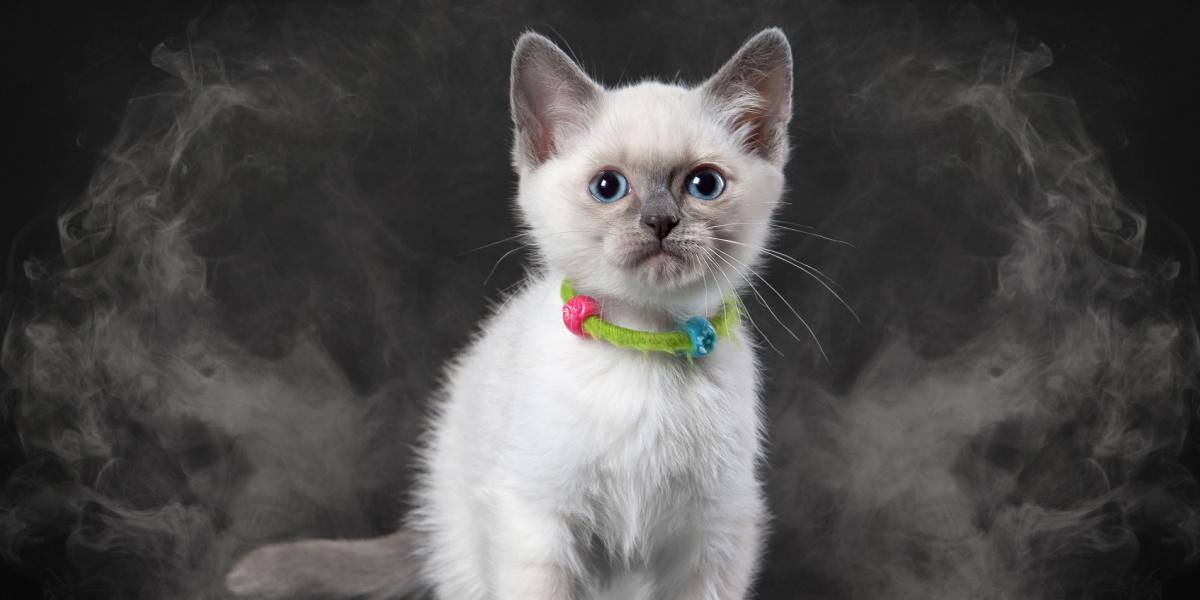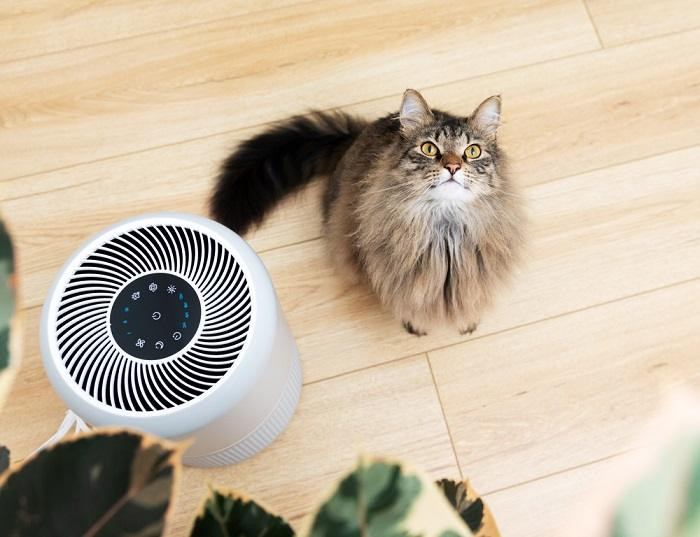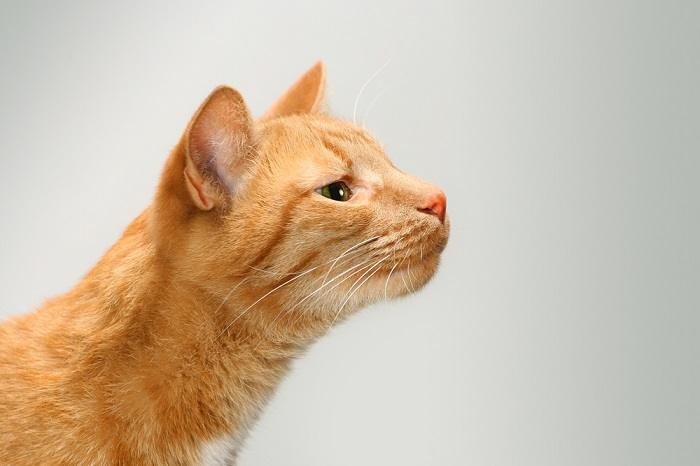 Cat with smoke
Cat with smoke
For many, incense sticks offer a soothing aroma, perfect for meditation, relaxation, or simply freshening up your living space. However, if you’re a cat owner, it’s crucial to consider the potential risks incense poses to your feline companion. As devoted cat parents, we prioritize their safety and well-being, and understanding the dangers of incense, along with other scented products like candles and oils, is paramount.
Burning incense can introduce a range of health hazards for cats. These can range from respiratory system irritation to burns and exposure to toxic substances. Before lighting incense in your home, it’s essential to be aware of these potential issues and take necessary precautions to ensure your cat’s safety and health.
Key Dangers of Incense for Cats
- Burning incense can lead to respiratory problems, burns, and toxin exposure in cats.
- Limit incense burning to well-ventilated rooms inaccessible to your cat.
- Explore safer alternatives for home fragrance if you have feline family members. If you must use incense, prioritize keeping it far away from cats.
Understanding Incense and Its Components
Incense sticks are typically crafted from a blend of plant-based materials and infused with various essential oils to create their distinctive scents. Fragrances span a wide spectrum, from calming lavender and vanilla to invigorating sandalwood and tea tree.
The practice of burning incense has deep historical roots, dating back to ancient civilizations like China and Egypt. Historically used in religious ceremonies and by priests, incense today serves purposes ranging from simple aromatherapy to enhancing meditation practices and spiritual rituals.
Traditionally, incense making involved hand-grinding ingredients into a fine powder, mixing them with honey, and hand-rolling the mixture onto bamboo sticks. Modern mass production often utilizes a “dipping” method, which can incorporate a higher concentration of chemicals.
6 Reasons Why Incense Can Be Harmful to Cats
There are several compelling reasons why burning incense around cats is not advisable. The smoke itself can be a significant irritant to their sensitive airways. Furthermore, a cat’s heightened sense of smell can find the fragrance overwhelming, and the combustion process can release potentially harmful chemical compounds. The Environmental Protection Agency (EPA) even identifies incense burning as a contributor to indoor air pollution.
1. Heightened Sensitivity to Smell
Cats possess an exceptional sense of smell, far surpassing our own. To put it in perspective, cats boast approximately 200 million olfactory receptors, enabling them to discern a vast array of scents. Humans, in comparison, have a mere 5 million.
This significant difference means cats experience odors with much greater intensity. The fragrance of incense, even seemingly mild scents to us, can be incredibly potent to a cat. Imagine scents like eucalyptus or citrus amplified fortyfold!
Scent plays a vital role in feline communication and navigation. Cats rely heavily on scent marking and pheromones to convey messages to themselves and other cats. Overpowering fragrances in their environment can disrupt these crucial scent signals, potentially causing stress and anxiety.
2. Burn Risks from Hot Ash
 cat looking at the lit candle
cat looking at the lit candle
A curious cat investigating a burning incense stick can easily suffer burns.
Cats should never be left unattended in areas where burning objects are present, including candles, fireplaces, and incense. While an incense stick might appear harmless, the glowing ash at the tip is hot enough to cause burns if a curious nose gets too close. Cats are naturally inquisitive, and a knocked-over burning incense stick presents a fire hazard.
3. Respiratory Irritation from Smoke
Incense combustion produces smoke. This smoke can rapidly permeate a room and even spread throughout your home, making escape difficult. Smoke is a well-known respiratory irritant, and cats are particularly susceptible to inhaled irritants.
Exposure to incense smoke can irritate the delicate lining of a cat’s respiratory system, leading to symptoms like sneezing, coughing, nasal congestion, and watery eyes. Cats may also become lethargic and generally feel unwell. In rare cases, a cat might have an allergy to incense smoke, causing severe breathing difficulties. Repeated or prolonged exposure can worsen these symptoms.
4. Increased Asthma Risk
Regular incense burning in your home means your cat is constantly exposed to smoke. This chronic exposure can cause long-term damage to their lungs and elevate the risk of developing chronic respiratory conditions like asthma. The EPA’s classification of incense as an indoor air pollutant underscores its significant impact on indoor air quality.
5. Exposure to Volatile Organic Compounds (VOCs)
Combustion, by its nature, releases chemical compounds in smoke. Incense quality varies, and some sticks contain a range of additives. Burning lower-quality incense may release certain compounds, some of which could be carcinogenic (cancer-causing) to both humans and pets.
6. Potential Harm from Oils
Incense derives its fragrance from essential oils infused into plant materials. It’s established that certain essential oils are toxic to cats, causing airway irritation when inhaled and posing a poisoning risk if ingested. While cats are unlikely to eat incense sticks, their curious nature makes it prudent to keep potentially harmful substances out of reach, especially from playful kittens.
Safer Ways to Freshen Your Home
 cat and air purifier
cat and air purifier
Air purifiers are an excellent way to maintain a fresh-smelling home while prioritizing your cat’s health and comfort.
A pleasantly scented home is desirable, creating a relaxing and inviting atmosphere. This is particularly important for pet owners who manage litter box odors. Fortunately, you can achieve a delightfully scented home without compromising your cat’s safety.
Avoid these around cats: Essential oil diffusers, burning herbs, and scented candles are not recommended for cat owners due to burn risks and potential toxicity.
Keeping Incense Use Safe (If Necessary)
If incense burning holds significant importance for you, perhaps for spiritual or cultural reasons, you can take steps to minimize risks to your cat.
Confine incense burning to a single, well-ventilated room that is completely inaccessible to your cat. Always store incense securely out of your cat’s reach. If you suspect your cat has ingested incense, seek immediate veterinary attention.
The quality of incense matters. Traditional incense made with powdered ingredients, honey, and bamboo is generally safer. However, it’s often more expensive and less readily available. Mass-produced, low-cost incense made using the “dipping” method may contain charcoal or sawdust, along with potentially harmful chemicals. Opting for high-quality incense can significantly reduce its potential impact on your pet’s health.
In Conclusion: Incense and Cats Don’t Mix Well
 cat smelling
cat smelling
Ultimately, incense is not the best choice for home fragrance when you have cats.
Despite its appealing aroma, burning incense in a home with cats presents several downsides. These include the overpowering scent for their sensitive noses, the risk of respiratory irritation and disease from smoke, and the potential hazards of chemical components in the incense itself.
While safer home fragrance alternatives exist, if you choose to burn incense, limiting it to high-quality varieties, in a well-ventilated, cat-free room minimizes potential harm to your feline companion. With careful planning, you can potentially enjoy incense while prioritizing your cat’s well-being.
Also Read: Feline Viral Rhinotracheitis (AKA FHV): Causes, Symptoms, & Treatment
Frequently Asked Questions
Can incense be fatal to cats?
While unlikely to be directly fatal, incense poses multiple risks to cats, including lung irritation and scent overload. Fatality is rare but could occur in asthmatic cats experiencing a severe reaction to smoke or if a cat ingests incense containing highly toxic chemicals.
Are scented candles dangerous for cats?
Scented candles are generally not recommended around cats unless closely supervised. A cat’s curiosity can lead to knocked-over candles, creating fire and burn hazards. Scented candles can also contain essential oils toxic to cats, and the fragrances can irritate their respiratory systems.
Is lavender incense safe for cats?
Lavender is considered mildly toxic to cats, meaning ingestion of a significant amount is needed to cause problems. However, due to respiratory risks from smoke, all types of incense are best avoided in homes with cats.

